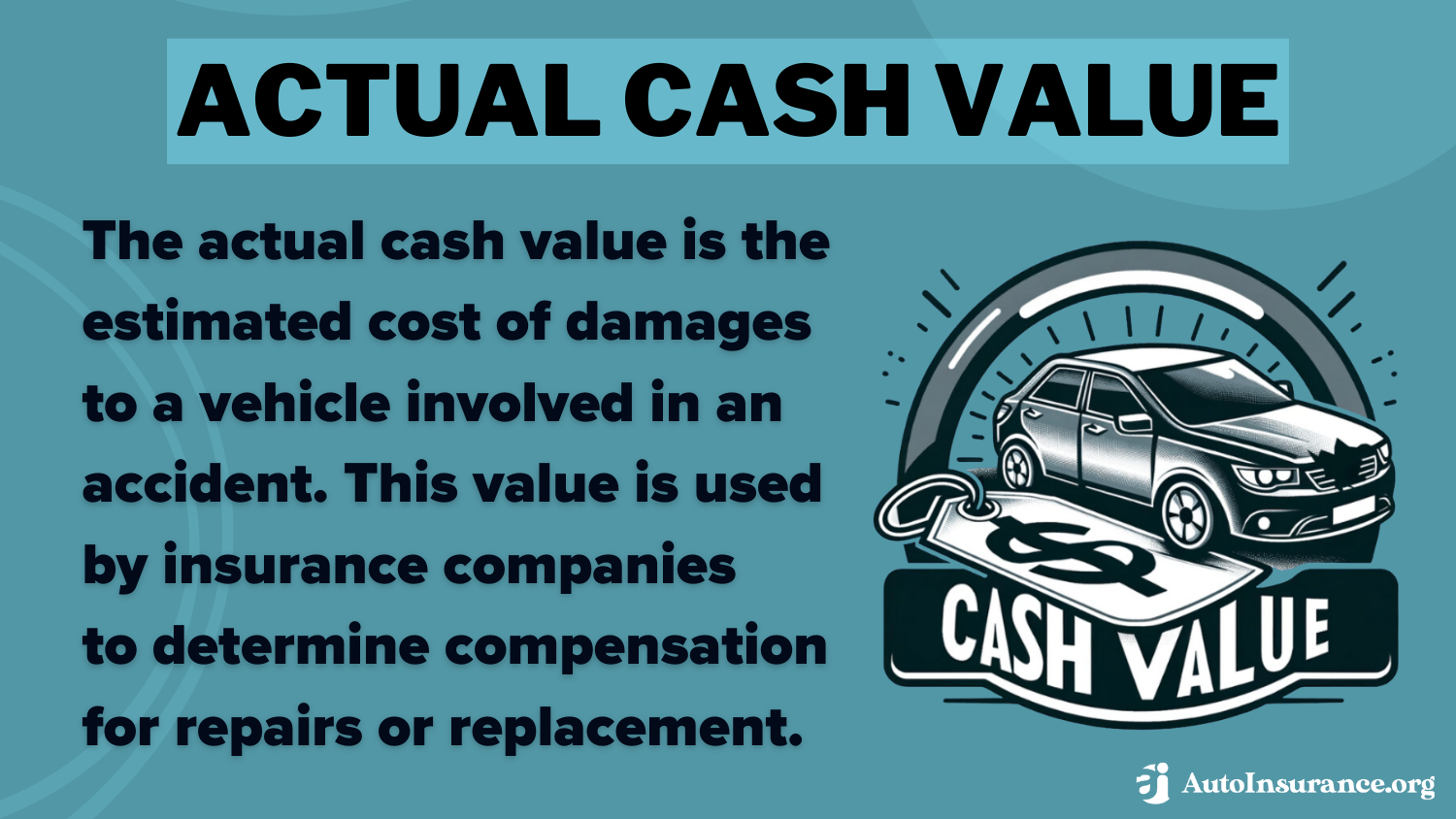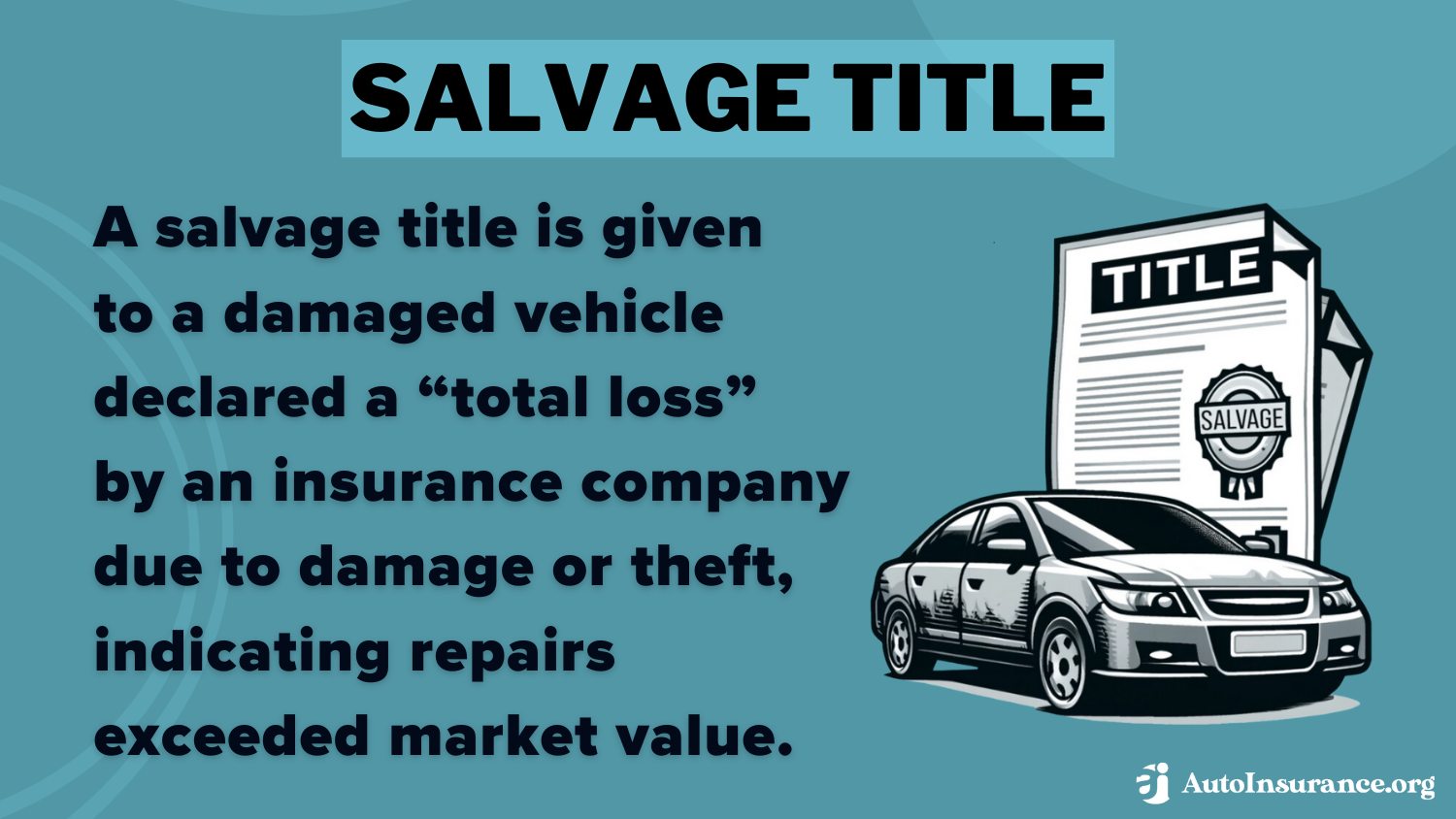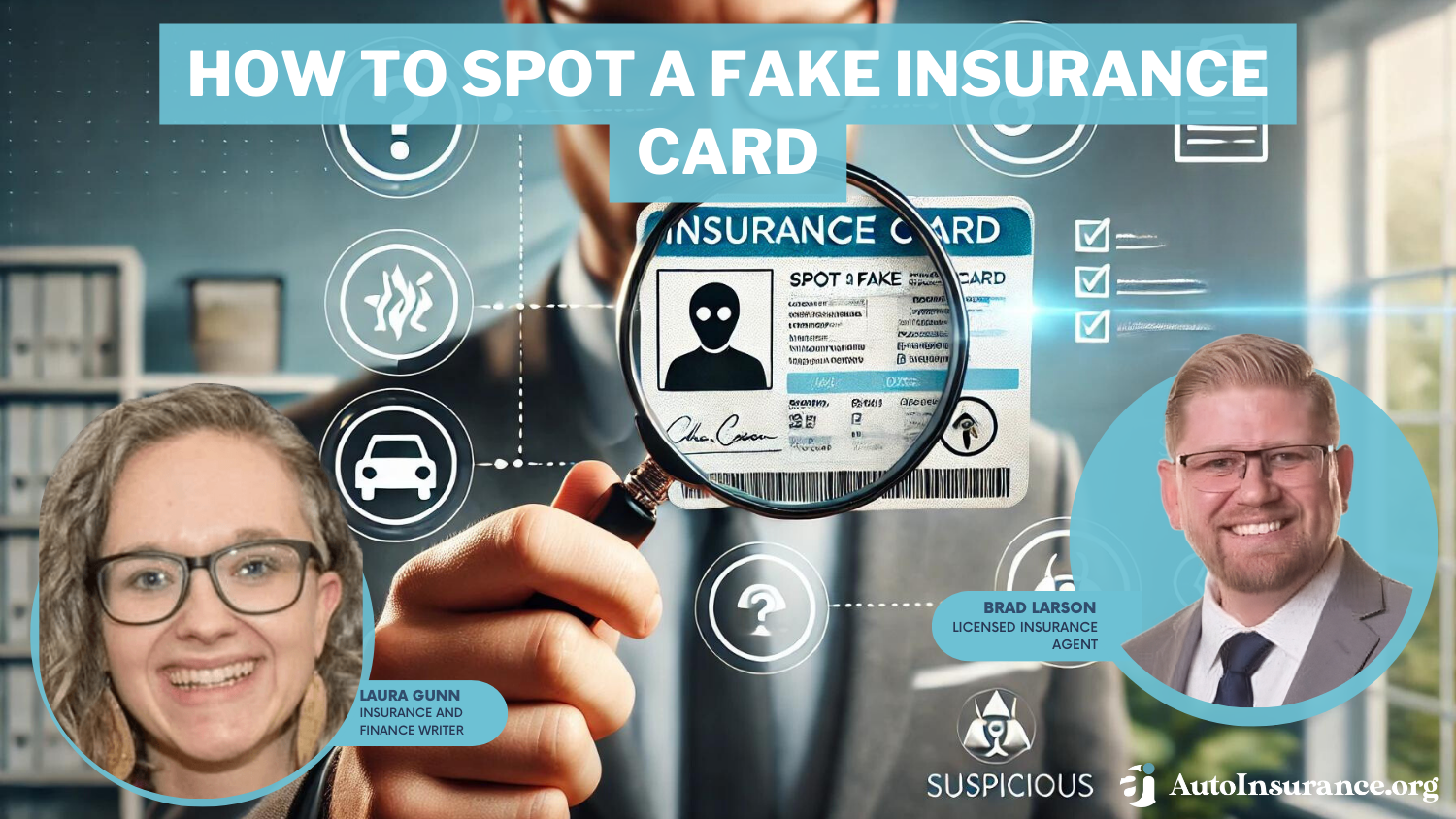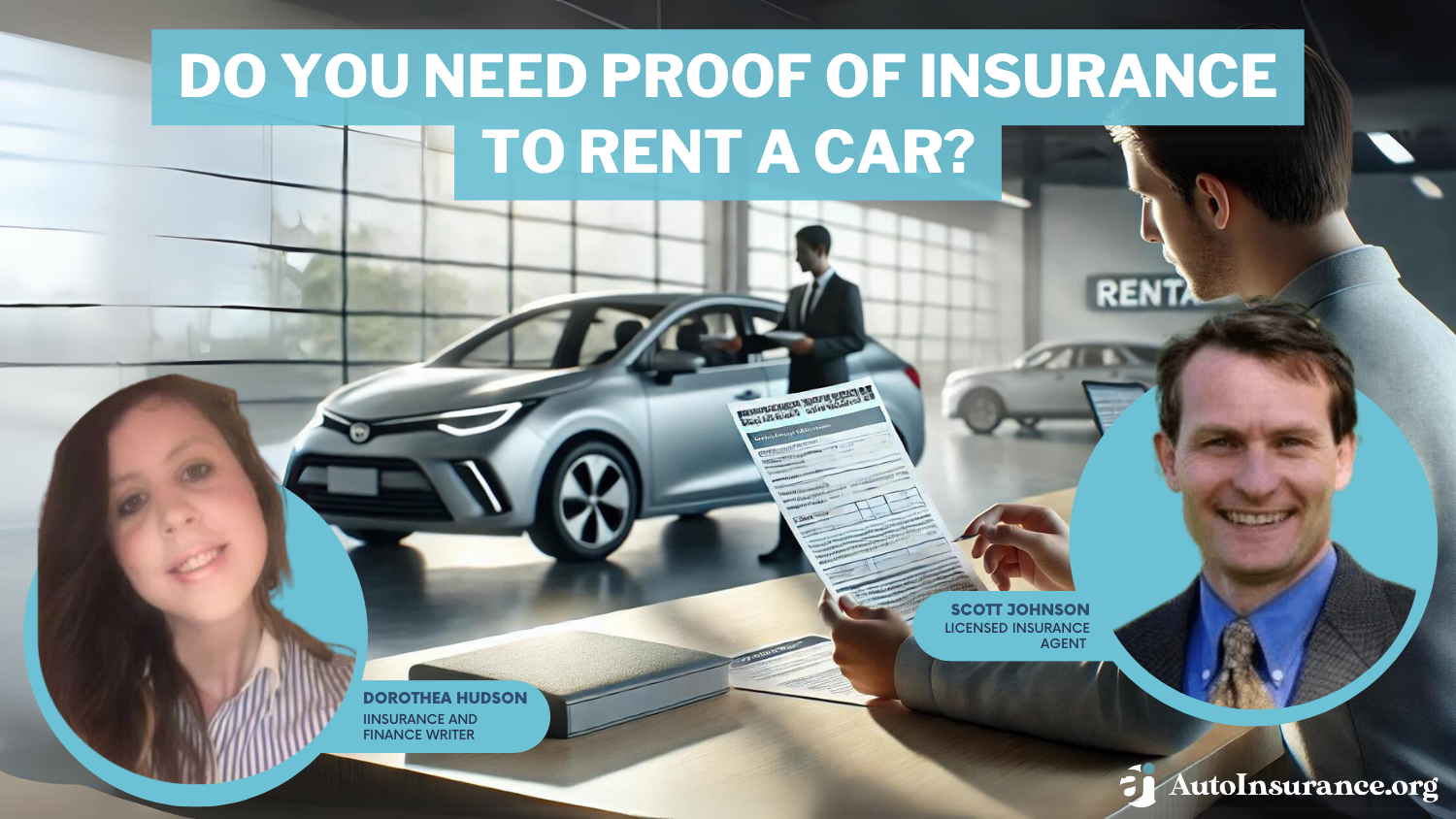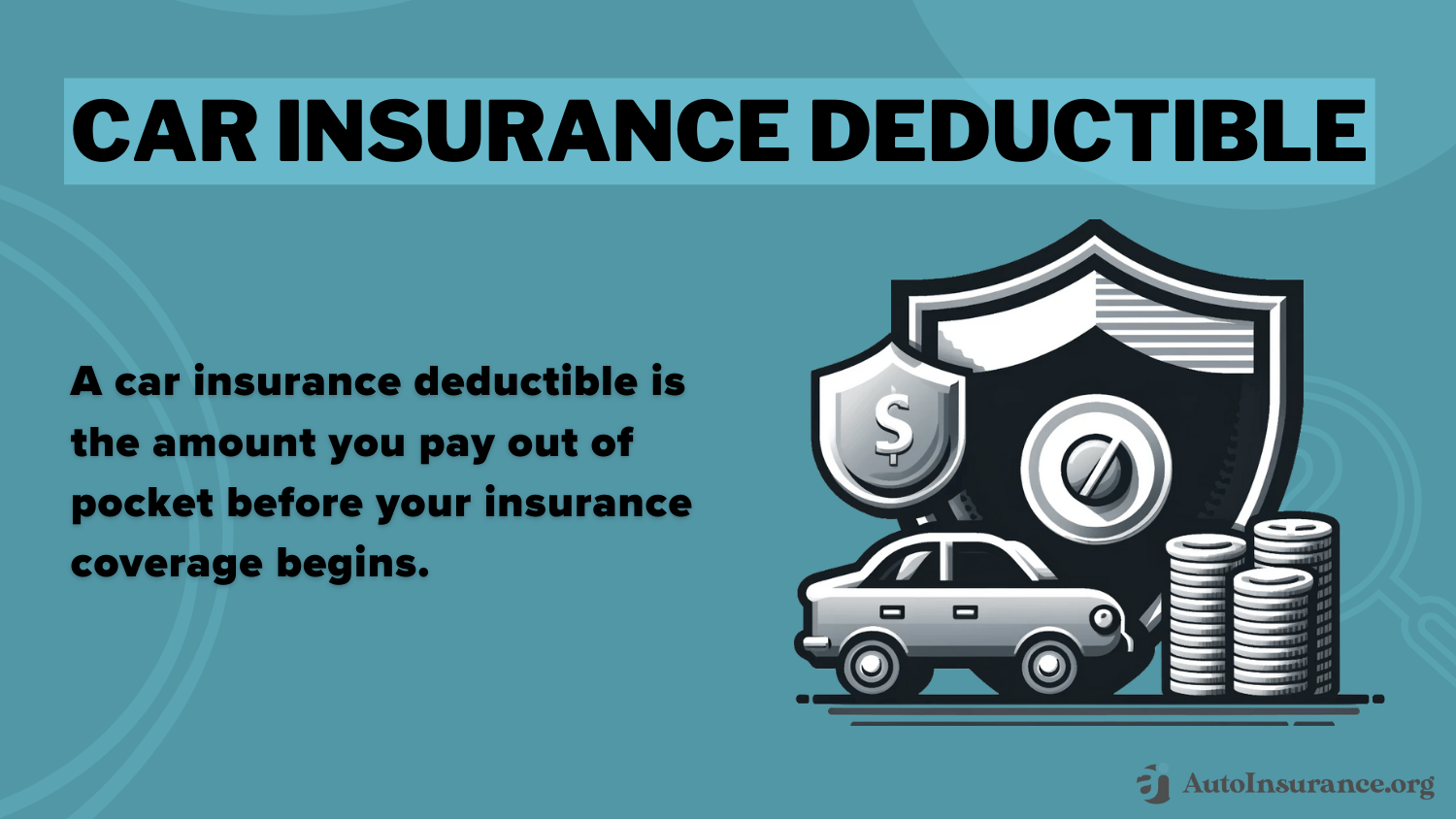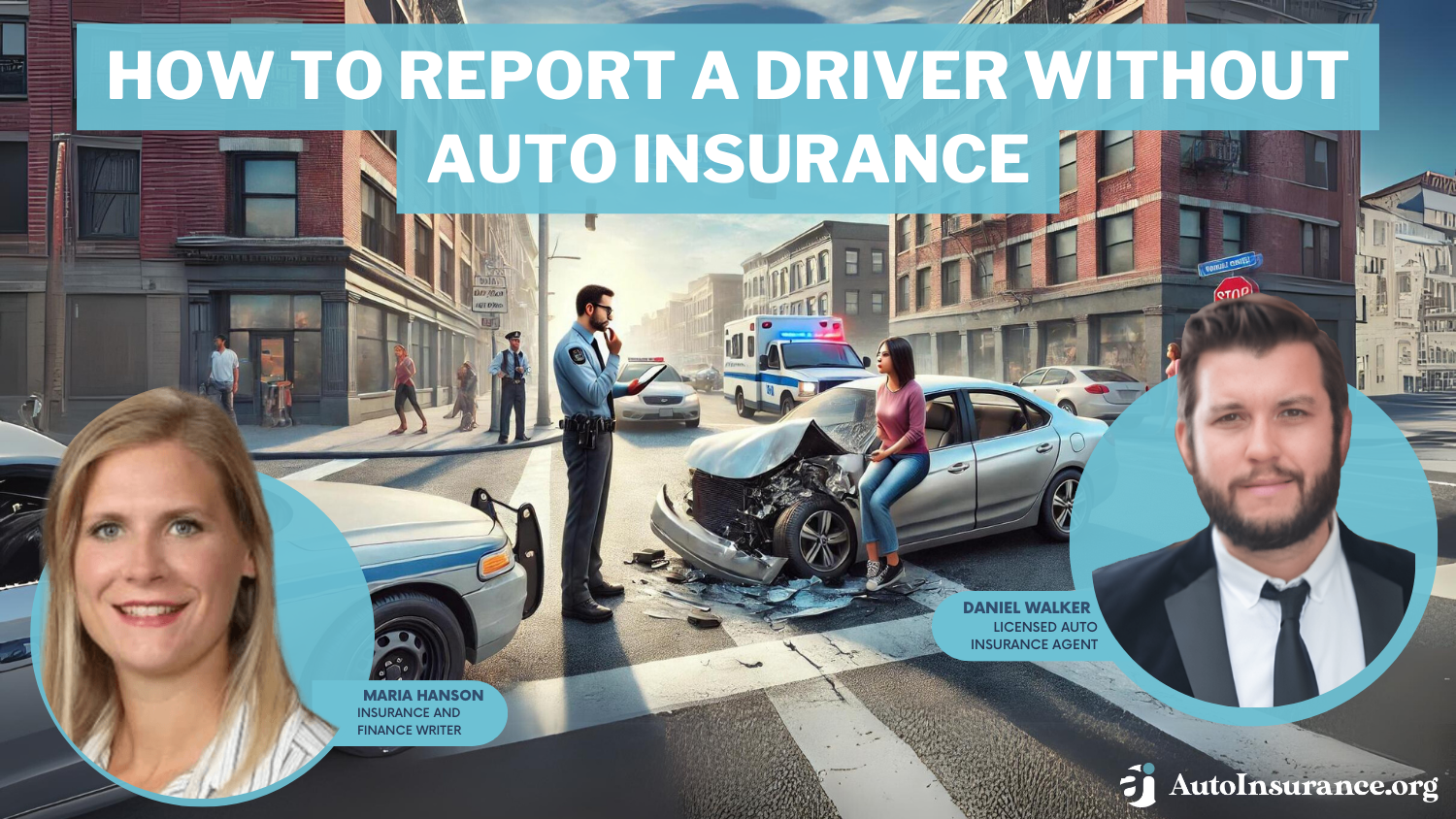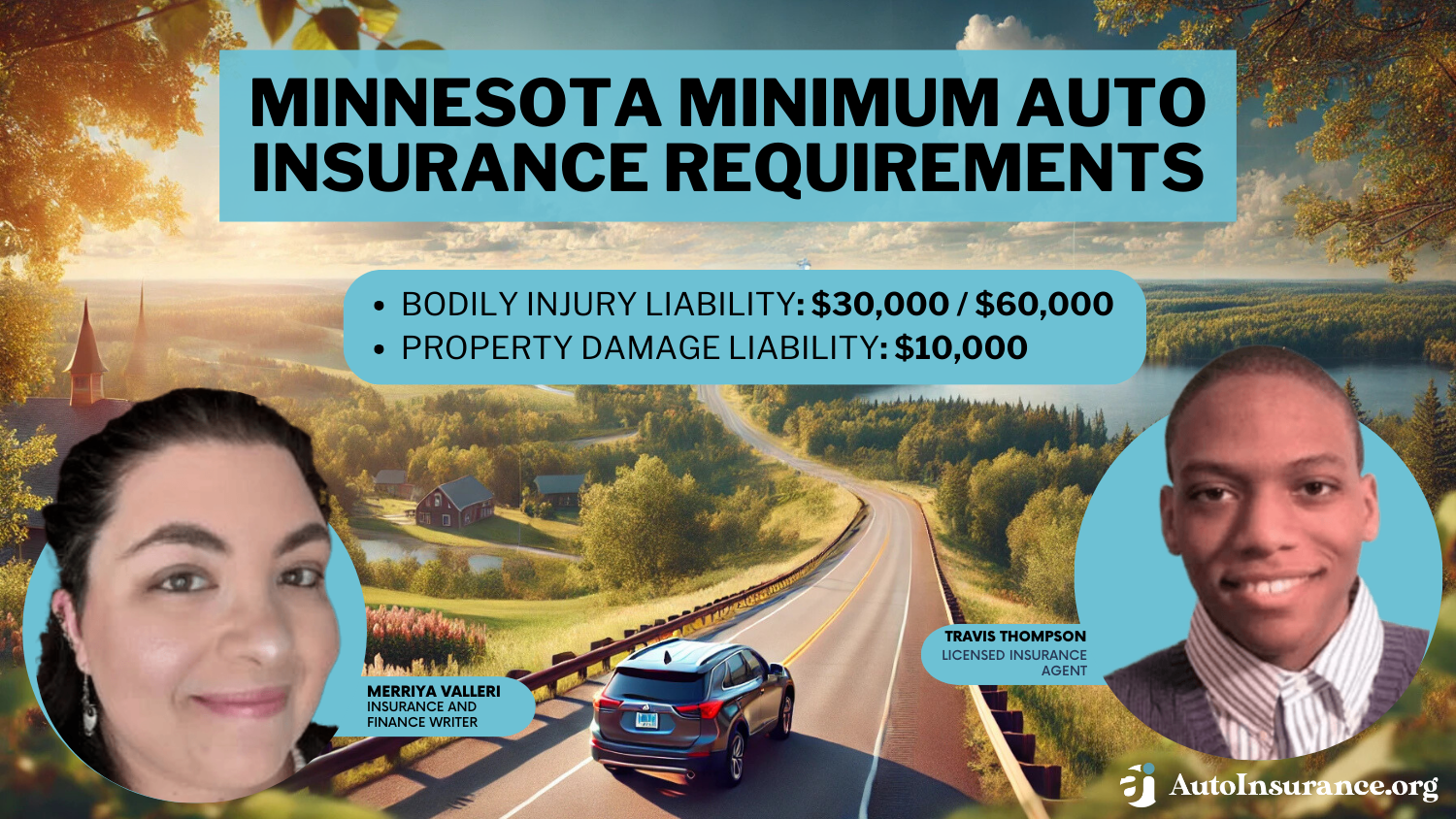How Insurance Companies Determine if a Car is Totaled in 2026 (6 Simple Steps)
Insurance companies determine if a car is totaled by assessing the damage, calculating the actual cash value, applying the total loss formula, and considering state thresholds, policy type, and salvage value. These factors can impact your car insurance rates, with the lowest available rate starting at just $22/mo.
Read more Secured with SHA-256 Encryption




Table of Contents
Table of Contents


Insurance and Finance Writer
Laura Gunn is a former teacher who uses her passion for writing and learning to help others make the best decisions regarding finance and insurance. After stepping away from the classroom, Laura used her skills to write across many different industries including insurance, finance, real estate, home improvement, and healthcare. Her experience in various industries has helped develop both her ...
Laura Gunn


Licensed Insurance Agent
Brad Larson has been in the insurance industry for over 16 years. He specializes in helping clients navigate the claims process, with a particular emphasis on coverage analysis. He received his bachelor’s degree from the University of Utah in Political Science. He also holds an Associate in Claims (AIC) and Associate in General Insurance (AINS) designations, as well as a Utah Property and Casual...
Brad Larson
Updated June 2025
How insurance companies determine if a car is totaled involves evaluating factors like the vehicle’s actual cash value (ACV), repair costs, and age. Insurers typically declare a car totaled if the repair costs exceed 70-80% of its ACV.
This decision plays a crucial role in the payout process, as policyholders may receive either the car’s full value or a portion of it based on the assessment. Understanding these factors can help car owners navigate the claims process more effectively. For more details, check out this guide on what is auto insurance.
By entering your ZIP code, you can get instant car insurance quotes from top providers.
- Step #1: Assess Damage — Check the vehicle for significant damage
- Step #2: Calculate ACV — Determine the car’s market value before the accident
- Step #3: Apply Total Loss Formula — Compare repair costs to the ACV for a decision
- Step #4: Consider TLT — Verify if repair costs meet the state’s total loss threshold
- Step #5: Evaluate Policy Type — Verify coverage details for total loss eligibility
- Step #6: Deduct Salvage Value — Subtract the salvage value from the payout
6 Steps How Insurance Companies Determine if a Car is Totaled
Insurance companies determine if a car is totaled through a series of steps, focusing on the extent of damage, repair costs, and the car’s value. These include evaluating the actual cash value (ACV), applying the total loss formula, and considering state-specific total loss thresholds. Understanding how these factors work together will be discussed further, breaking down each step for clarity.
Learn more about the factors that affect auto insurance rates to understand how they influence claims and coverage.
Step #1: Assessment of Damage
A full damage assessment is the first step to determine if a car is totaled. Insurance companies will conduct a thorough inspection, which may be done by an adjuster or an expert technician. The damage is assessed for its severity to the exterior and the internal components. Structural integrity, safety features, and the functionality of critical systems are evaluated.
If the vehicle’s repair cost exceeds a certain level, it is considered a total loss. However, this may differ from one insurance company to another, though it is commonly based on repair costs and current market value for the vehicle. If the amount of repairs would be an impractically large percentage of the vehicle’s worth or if its safety and driving performance are too severely impaired to be reasonably repaired, it is likely to be totaled.
Determining a total loss is based on comparing the repair costs to the vehicle's market value. If repairs exceed a certain percentage or if the vehicle's safety is compromised, insurers often consider it a total loss, simplifying the claim process moving forward.Brandon Frady Licensed Insurance Producer
Learn more about comprehensive auto insurance claims.
Step #2: Calculation of Actual Cash Value (ACV)
Once the damage has been evaluated, the insurance company calculates the car’s Actual Cash Value (ACV). This is the most important step in determining how insurance companies value a car that might be totaled. To accurately establish the insurance value for totaled cars, insurers consider several factors:
- Age: This is because depreciation occurs in older cars; the more time a car takes to be used, the more it depreciates, and consequently, the more it reduces in price, which automatically affects the overall value of a totaled car.
- Mileage: High mileage affects the value as most of the depreciations are directly proportional to its mileage, making mileage an important factor in deciding the value in the case of insurance companies when totaled.
- Condition: The condition of the vehicle, both inside and outside, determines its value. If the car was well maintained, it would retain more value. These factors determine how insurance companies value your car.
- Market Value: The insurance companies compare the market value of the car before the accident with similar cars in the local area, taking into account the condition and mileage to determine the insurance value for the totaled car.
Depreciation is then subtracted from the car’s original value to get the ACV. This value is the car’s worth at the time of the accident and is the basis for deciding whether it is a total loss. The next step will further narrow down whether the car is actually totaled using the total loss formula and state total loss threshold based on repair costs and other factors.
By calculating the ACV, insurers answer the question of what value insurance uses to total a car. The ACV is an important part of this process because it provides a baseline for determining whether the repair costs or the salvage value of a totaled car would surpass this amount, which would result in a total loss.
For policyholders, understanding recoverable depreciation is essential as it highlights the possibility of recouping the depreciation value under specific coverage terms.
Step #3: Application of the Total Loss Formula
Once the actual cash value of the vehicle is determined, how insurance companies value a totaled car becomes very important. The insurer applies a total loss formula (TLF) to determine whether the car should be declared a total loss. This formula combines the repair costs and the salvage value of the vehicle.
- Repair Costs: This is the cost of bringing the vehicle back to a safe working condition. This can consist of parts and labor, as well as specialty repairs to fix damaged structural elements or vehicle safety features.
- Salvage Value: Salvage value is the worth of a wrecked car when sold for parts or scrap. If the vehicle is not restored and remains in its damaged condition, this is the amount of money the insurance company can collect.
The secret is that when the repair cost plus the salvage value are higher than the vehicle’s ACV, it is a total loss. That formula works for what makes a car total, given financial realities. That’s the way of thinking: a total loss will mean how it was calculated to ensure the company will spend the money needed on the repair rather than to declare the total loss.
Our article about comprehensive auto insurance explains how these policies cover damages, including total loss scenarios.
Step #4: State Total Loss Threshold (TLT)
The State Total Loss Threshold establishes a percentage of a car’s Actual Cash Value, at which repair costs result in a total loss designation. Repair costs reach or exceed this percentage – commonly set between 70% and 80%, depending on the state in which the vehicle is considered totaled. This regulation, therefore, ensures consistency in how insurance companies may determine car value for seriously damaged vehicles.
The Total Loss Threshold (TLT) ensures that repair costs are measured against a vehicle's value, preventing insurers from spending more on repairs than the car is worth, and providing a clear, consistent way to determine whether a car is totaled.Daniel Walker Licensed Auto Insurance Agent
The TLT determines what totals a car by weighing up the cost of repairs against the car’s worth before the accident. It avoids situations where the cost of repair exceeds the value of the vehicle and hence straddles financial practicality with protection for the policyholder. Insurers use this threshold in their standardized process to avoid excessive costs and disputes resulting from total loss valuation.
Applying the TLT, insurance firms compute the actual price of a car while considering many factors, such as repair estimates and salvage value minus ACV, which decides if it is an outright loss. All this is so that the proper and fair reevaluation does not damage either party’s pocket both ways. Learn more about how much car insurance you need to protect yourself in such situations.
Step #5: Policy Type Consideration
The type of insurance coverage a driver holds plays a crucial role in how insurance companies determine the value of a totaled car. For instance, a replacement cost policy will yield more than a policy meant to replace only ACV. A replacement cost policy allows the policyholder to get a payout that would replace the car with an identical make and model, irrespective of the car’s depreciation.
This can be more expensive if the car is quite new because insurers do not calculate the value of cars based on depreciation in this type of policy. This site has an ACV policy that adjusts the payout by considering various factors, such as the age and mileage of a car and its condition. In such cases, when insurance companies total a car, it may depend on whether the cost of repairs exceeds the ACV, which is the car’s value at the time of the accident.
Besides, how insurance companies calculate car value often depends upon the salvage value, which is the amount at which the damaged car could be sold. If the salvage value is high, it may also reduce the amount paid to the policyholder. Ultimately, how insurance companies value totaled cars depends on the type of policy, which in turn affects the total loss decision and the final payout amount.
The table below shows the auto insurance rates of minimum and full coverage for the given providers; this reflects how the pricing in each company could be affected by the approach in determining whether the car is a total loss.
Auto Insurance Monthly Rates by Provider & Coverage Level
| Insurance Company | Minimum Coverage | Full Coverage |
|---|---|---|
| $61 | $160 | |
| $44 | $117 | |
| $53 | $139 | |
| $30 | $80 | |
 | $68 | $174 |
 | $44 | $115 |
| $39 | $105 | |
| $33 | $86 | |
| $37 | $99 | |
| $22 | $59 |
While choosing your insurance, you must know how other providers determine what a total loss is since that determines the price for coverage as well as outcomes on claims. It reflects the premium for your coverage based on levels and contributing factors that classify your car as a total loss.
Step #6: Salvage Value Deduction
If the vehicle was not being fixed and the owner retained it, the insurance provider would subtract salvage value from any payout made out. Salvage value is often the amount realized when a vehicle is sold as junk or parts, which usually reduces an overall payout to an insured. This deduction ensures the insurer is paying out no more than necessary; after all, the owner will have the opportunity to sell or repair the vehicle independently.
Should the owner maintain possession of the vehicle, they may be awarded a salvage title, which implies that the vehicle has been declared a complete loss. This title goes to affect the resale value of the car later and can increase its difficulty of getting insured as it reflects major damage or risk about the vehicle.
This step seals the insurer’s liability financially, considering the remaining value of the car in its current state.
Free Insurance Comparison
Compare Quotes From Top Companies and Save
Secured with SHA-256 Encryption
Insurance Payouts for Totaled Cars Explained
If your car is declared a total loss, one of your first concerns may be how much your insurance will pay out. The amount depends on the replacement value or actual cash value (ACV).
Replacement value policies generally offer lower payouts. With this coverage, your insurer will pay you enough to replace your totaled vehicle with one of similar make, model, mileage, and condition. This payout may not fully cover the cost of a new or comparable car, as it focuses on finding a similar vehicle rather than covering the full market value.
In contrast, full-value policies provide a higher payout. Under this type of coverage, the insurer pays you the full market value of your vehicle at the time of the accident. Current market rates typically determine this amount and may not always align with estimates from sources like Kelley Blue Book, but it aims to reflect your car’s worth in real-world terms at the time of loss.
Understanding How Insurance Companies Total Your Car
Determining how insurance companies determine if a car is totaled involves a detailed process that goes beyond just assessing visible damage. Insurers first evaluate the vehicle’s overall condition, checking for structural damage that could compromise safety.
They then calculate the car’s Actual Cash Value (ACV), considering factors like age, make, model, and depreciation. Using the total loss formula, they compare the repair cost to the ACV, and if the repairs are too costly, the car is classified as a total loss.
Each state has its own Total Loss Threshold (TLT), which represents a percentage of the car’s value that, once exceeded in repair costs, leads to a total loss declaration. Depending on the type of policy, such as replacement cost coverage, the payout can be higher than for standard policies.
If the car is totaled, the owner may also opt to keep the vehicle, with the insurance payout adjusted to reflect its salvage value (Learn More: Can I Keep My Car If the Insurance Company Totals It?).
If your car was recently damaged or totaled in an accident, enter your ZIP code into our free comparison tool to find out your auto insurance rates may have changed.
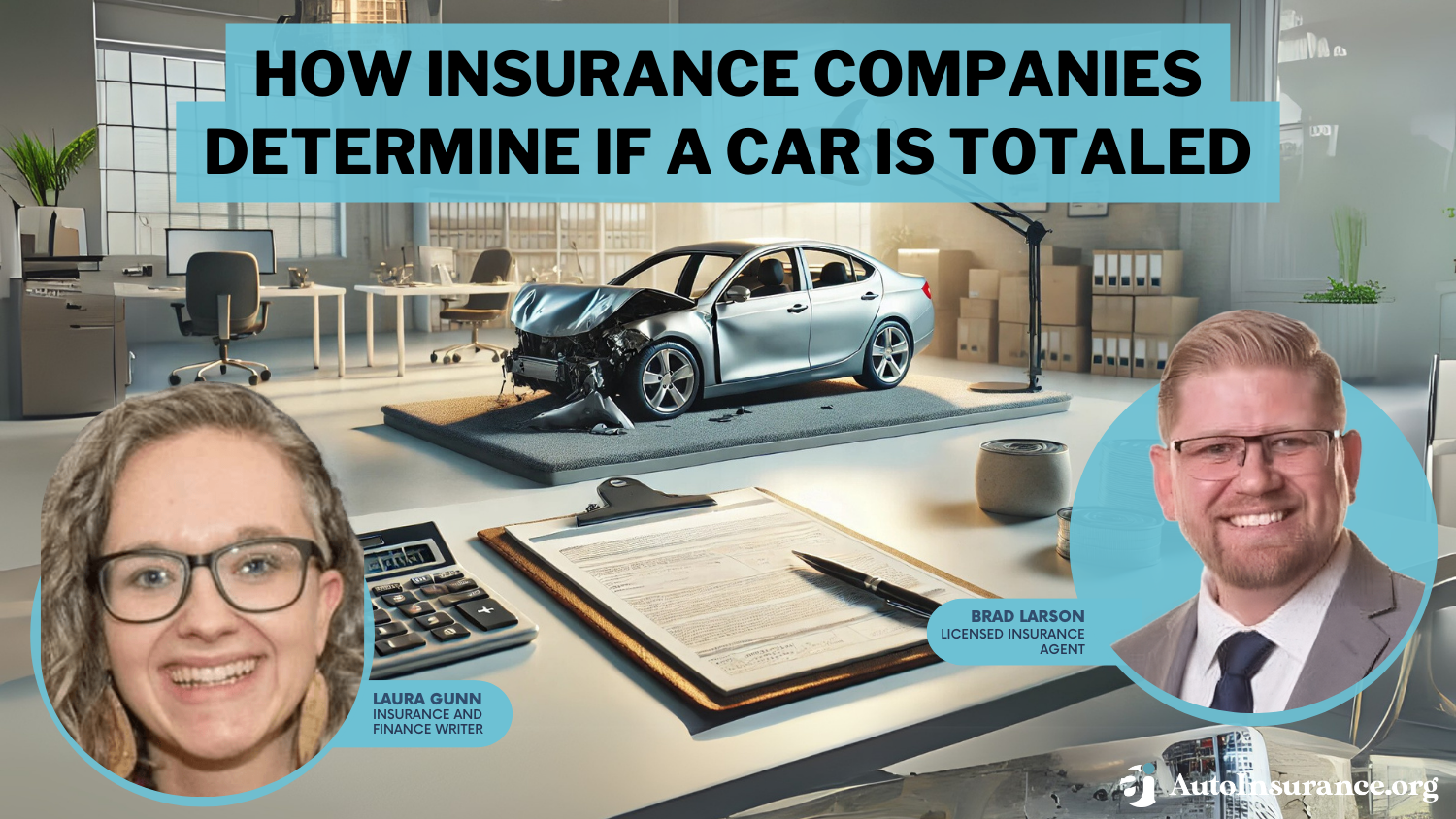
Frequently Asked Questions
What does “total a car” mean?
A totaled car, also known as a total loss, is a vehicle that has been severely damaged or involved in an accident to the extent that the cost of repair exceeds a certain percentage of its actual cash value (ACV), as determined by the insurance company.
When do insurance companies total cars?
Insurance companies total cars when the cost of repairing the vehicle exceeds its current value. This decision is typically made when repair costs exceed 70% to 80% of the car’s actual cash value.
Find the best comprehensive car insurance quotes by entering your ZIP code into our free comparison tool today.
How do insurance companies value cars?
Insurance companies determine a vehicle’s value by considering factors such as make, model, age, condition, mileage, and local market value, along with accident history and modifications. This helps insurers assess the car’s value for claims purposes.
Can I dispute the value assigned to my totaled car?
Yes, you can dispute the value of your totaled car if it seems inaccurate. Gather evidence like maintenance records, receipts for repairs or upgrades, and details on comparable vehicles. Present this to your insurance company and request a reevaluation.
What do insurance companies do with totaled cars?
After declaring a car as totaled, insurance companies often sell the car to a salvage yard or an auction. The car’s remaining parts are then either recycled or resold to recover some of the costs.
How do insurance companies calculate the salvage value of a totaled car?
Insurance companies calculate salvage value by considering the vehicle’s usable parts and current demand. A totaled car value calculator helps estimate the car’s worth, factoring in damage and market conditions.
How do insurance companies determine the value of a car?
Insurance companies assess the value of a car by reviewing factors like its current market value, repair costs, and depreciation. They typically use tools like industry valuation guides and consider local market trends to arrive at an accurate value for your vehicle.
Protect your vehicle from whatever the road throws at it by entering your ZIP code into our free comparison tool to see affordable car insurance quotes.
Do I need to notify the DMV if my car is totaled?
Yes, you typically need to notify the DMV if your car is totaled, as they will need to update their records regarding the status of your vehicle, including its totaled car insurance value. This ensures that the DMV reflects the vehicle’s current condition and ownership status.
What determines if a car will be considered a total loss by insurance companies?
A car is considered a total loss when repair costs exceed a set percentage of its market value. If you’re asking, “can you ask an insurance company to total your car,” the answer depends on the damage and the insurer’s assessment.
How to determine the salvage value of a totaled car?
To determine the salvage value of a totaled car, insurers consider its condition after the accident, including whether parts can be reused or resold. The salvage value is often calculated based on the car’s weight and the value of its reusable components.
Get a FREE Quote in Minutes
Insurance rates change constantly — we help you stay ahead by making it easy to compare top options and save.


